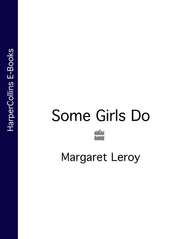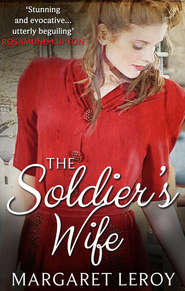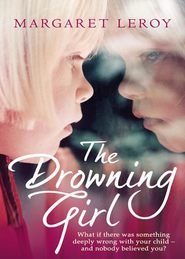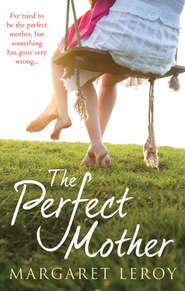По всем вопросам обращайтесь на: info@litportal.ru
(©) 2003-2024.
✖
The River House
Настройки чтения
Размер шрифта
Высота строк
Поля
He takes me out through the back of the station, down a long white corridor lit by harsh tubular lighting that shines into all the corners. The walls are scuffed in places, as though they have been kicked. We hear the shriek of a siren as a police car pulls away from the car park at the back of the building. I hunt around for something to say—some light appropriate comment—but my mind is blank, as though all thoughts have been erased.
‘I’d give you a lift,’ he tells me, ‘but there’s someone I’ve got to see. Some crap meeting that got set up and nobody bothered to tell me. I’d like to have given you a lift.’
‘I’ll be fine,’ I tell him.
We come to the door that opens onto the car park.The doorway is quite narrow and he’s standing close to me: he smells of rain and smoky rooms, and some faint spicy cologne.
He looks at me in a serious way, unsmiling now.
‘Sorry about the shouting,’ he says. ‘Someone messed up. Sorry. You shouldn’t have heard that.’
‘Don’t worry,’ I say blandly.
‘I wouldn’t like you to think I’m always shouting at people,’ he says.
I put my hand on his arm. It’s happened without thought, an instinctive gesture of reassurance. But his sleeve is rolled up and I touch his skin. It’s inappropriate, far too intimate, and I know he likes it. He turns to me: his face is close to mine. It would be the easiest thing in the world to reach out and trail my finger down the side of his face. It enters my mind that this is how it will be. The thought astonishes me.
The voice comes on the intercom again: the registration number, the body they need to identify, repeated over and over. This is how it happens, with the news of a death, with someone’s story ending.
I turn and walk across the car park between the lines of police cars, quickly, without looking back. I feel how his gaze follows me. In my new red shoes, the ground feels insubstantial under my feet, as though it could slide away from me.
That night I have a dream about Will Hampden. It’s a sexual dream—which is not in itself unusual, I have such dreams quite often. But usually they’re rather vague—as though my unconscious mind demurely follows the conventions of between-the-wars Hollywood movies. In these dreams, some indeterminate man, a stranger whose face I don’t see, might hold me or kiss me, or stand behind me and run his hand through my hair. Or the sexual feeling might be allied to some entirely neutral image: I might simply be swimming in a sunlit sea. And these images will be transient, rapidly merging with some other blurry narrative.
This dream is different. A dream of penetration, first his fingers, then his cock, gentle, slow, insistent. And it’s quite precise and vivid. I’m on top of him in the dream, I’m gazing down at him, seeing his face quite clearly, my eyes on his as he moves so deeply inside me: and it seems to go on for a very long time, though the end still comes too soon.
CHAPTER 7
We park near the restaurant in a wide mellow street. The girls extricate themselves from the back of the car: they have bags of clothes wedged round their feet, and boxes on their knees.
Honeyed autumn sunlight falls on Molly as she steps out onto the pavement. She’s wearing her flimsiest top, her most flamboyantly embroidered jeans. Her face is creased with worry.
‘What if someone nicks the car while we’re having lunch?’ she says. ‘All my stuff’s in there.’
She chews absently at a tendril of hair that’s slipped out of her hairband.
‘For God’s sake, Molly, no one will steal it,’ says Greg.
‘We’ll sit in the window,’ I tell her. ‘Then you can keep an eye on it.’
Greg raises his eyebrows.
Molly’s nervousness is like a glittery sheen on her. She moves on to her next worry.
‘Are you sure other people will have their parents with them?’
‘Yes, of course,’ I tell her. ‘Everyone will have their parents.’
‘They won’t,’ she says. ‘I bet they’ll all come with their mates in a van. They won’t have their parents. And, Mum.’ Her frown deepening as another fear comes rushing in. ‘What if they all know each other already? What if half of them come from the same school and they’ve known each other for years?’
‘Molly, stop freaking,’ says Amber severely.
The restaurant is crowded, but we manage to get a table by the window. Molly takes out her lipsalve. When her chicken pie comes, she just dips a chip in the sauce and sucks at the end of the chip. I terribly want her to eat, as though I have some unexamined idea that we’re feeding her up for weeks, as though this final family meal will magically sustain her.
She feels my gaze on her.
‘Sorry, Mum, I’d normally like it. I just can’t eat today.’
She’s hunched in on herself, as though she’s shrunk a little. I wonder how well I have prepared her for this moment of moving on, the ultimate test of my mothering. Maybe I should have pushed her more towards independence—right from when she was tiny and I used to go on feeding her, when I should perhaps have urged her to take the spoon. She was always rather too willing then to let me look after her. Whereas Amber would grab the spoon from the moment she could clasp it, mashed pears and custard flying exuberantly everywhere. Amber would grab whatever she wanted however much mess it made.
Another family comes to a table near us, two parents and a serious young man in a stylish denim shirt. He has a chiselled face and fine dark hairs on his arms. Amber glances at him, then away. She has an intent look.
She catches Molly’s eye.
‘Mmm,’ she says, thoughtfully. ‘I hope he’s going to your college.’
‘For Chrissake, shut up,’ hisses Molly.
Amber’s lips curve in a small secret smile.
We have crème brulée for pudding. Amber wolfs hers, then takes herself off to the cloakroom; and comes back by a devious route, brushing past the boy’s table, catching his eye and smiling slightly, keeping her lips pressed together to hide her braces. I love it that it comes so easily to her, this intuitive choreography that I’ve always found so perplexing.
I murmur to Greg, ‘Perhaps she’ll work a bit harder now. Maybe she’ll see the benefits.’
He shrugs. He gives me a puzzled look. Perhaps he didn’t see.
‘We need to get back to the car,’ he says. ‘We’re out of time on the meter.’
He pays the bill.
‘OK?’ I say to Molly.
She nods. She puts on more lipsalve.
We park at Molly’s college and she goes to the porter’s lodge and is given her key. Two o’clock chimes across the city: we hear the hollow sounds of many clocks and bells. We’re directed round the back; there’s a patch of gravel to park on, a tangled herbaceous border, a decrepit potting shed. The plants in the border are drying out and dying back with autumn—shaggy heads of chrysanthemums, and tatty Michaelmas daisies, their colours fading as though they’ve been left too long in water. The thin white stalks of some of the flowers have a calcified look, like tiny bones. Rich sunlight lies over everything. Around us, other families are unpacking their cars.
We go through the open fire door, along a brown corridor with many photographs of academic women, who all have solemn expressions and mildly unkempt hair. White rose petals have blown in through the open door onto the carpet. Someone has drawn genitals in black felt tip on the figure on the door of the men’s cloakroom.
Molly unlocks her door. The room has that immediate bleakness of all uninhabited student rooms; it’s under-furnished and nothing matches, the purple curtains ugly against the mustard walls. The ceiling is high. Our voices echo.
A brief panic flickers over her face, now it’s really happening.
‘I like the view,’ she says determinedly.
We go to the window. The gardens are spread out before us: a velvet lawn, an ancient beech tree, its massive limbs propped up with wooden struts, a round flowerbed with a sundial in the middle. It all has a subtle dishevelled loveliness, nothing too neat or ordered, no gravel path without its casual edging of lavender or sprawl of yellow daisies. Some autumn cyclamen, frail as moth wings, are flowering in the bare earth under the beech tree.
‘God, Molly,’ says Amber. ‘I wish I was a geek.’
We bring the boxes in, while Molly starts to unpack. I tip out cosmetics into a drawer, and the vitamins I bought for her. Her bath oil isn’t properly fastened and spills as I unpack it. I bite back the urge to tell her off. I go to the bathroom to wash the oil from my hands. The basins are swarming with green gauzy flies, and word-processed posters urge the ecological advantages of showers: ‘If you’re gagging for a bath, share one with a friend.’









